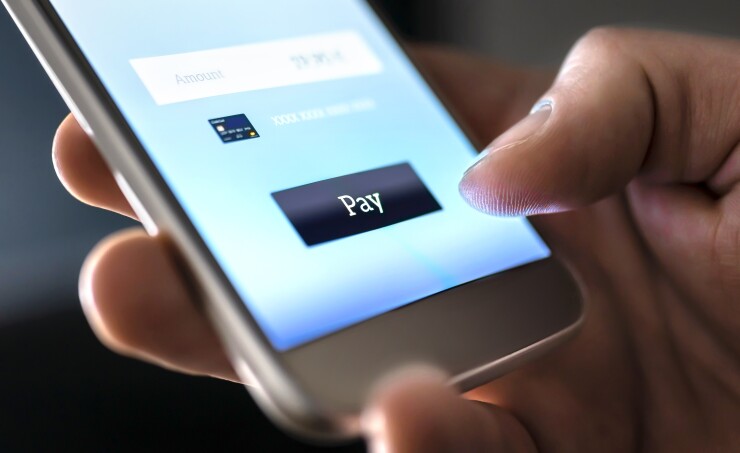A new law that requires cash apps and online marketplaces including Venmo and eBay to send tax documents to millions of Americans is ensnaring a surprising demographic: the wealthy.
Under the rule, e-commerce and digital payment platforms that transfer money from a buyer of goods or services to a seller must issue the recipient a
The law, which went into effect this year, is widely seen as having the greatest impact on rank-and-file entrepreneurs who use platforms like Etsy and Airbnb, freelancers, people with side hustles and gig economy workers like Uber drivers who get paid via a mobile payments app.
Notwithstanding the three-figure threshold, rich people are also impacted because they routinely use cash-transfer apps to pay hefty sums to their nannies, babysitters, gardeners, cooks, personal assistants and repairmen, wealth advisors say. Owners of summer cottages rent them out on Airbnb. These transactions are typically well over the $600 threshold, so the new forms can heighten the risk of an audit by the IRS. With the new rule, the affluent are "now on the radar,” said Ken Eyler, the CEO of Aquilance, a financial bookkeeping and bill payment firm for high net worth families.
The nation's tax collector is perennially concerned about income that goes unreported by cash-intensive businesses, like restaurants and laundromats. By one academic
About that latte I paid you back for
The new law has prompted criticism from industry groups that the forms won’t distinguish between taxable income — say, payment received for a wedding photography session — and nontaxable transfers of money, such as someone reimbursing friends through PayPal for throwing a baby shower or a grandmother sending her grandchild $1,500 as a college graduation gift. As such, taxpayers and the IRS may receive erroneous forms.
“The law is clear that money received as a gift or reimbursement of a share of a meal should not be reported on a 1099-K,”
The rule also complicates the math a taxpayer may have to do when reselling an item. Selling an expensive Restoration Hardware sofa or used organic chemistry textbooks on Facebook Marketplace for less than you paid means that you have a loss. You
Not all money is taxable
Under the new rule, "the government only sees the movement of money,” said Eyler. “People in the transaction have to prove it was not taxable” through records and receipts. “If you have no records, it’s going to be imputed to be income.”
Apps like PayPal and Venmo ask senders whether they’re sending money for “goods and services” or to “friends and family.” Both apps
From high-quality corporate paper to munis, there are surprising deals to be had.
Online platforms have started warning sellers of the rule. Facebook
PayPal
Transactions made through Craigslist don’t trigger the form because the online platform is an advertising service and doesn’t process payments between buyers and sellers. Zelle, which also doesn’t process or collect payments but instead simply transfers money between bank accounts,
The nanny state
Say you hire a nanny and pay them $1,000 a week through Venmo. Under IRS rules, the nanny is a domestic employee, and the payer is supposed to pay domestic payroll taxes.
“I can tell you a lot of people are not doing that,” Eyler said.
The payor might try to get around the new reporting requirement by paying the nanny through a friends and family channel, but that doesn’t carry the same buyer and seller protections as the goods and services channel.
What if the nanny reports the income?
“Now there’s a reported trail back to that family,” Eyler said, adding that the IRS “looks for hot-button things, and employee issues are a hot-button thing.” Some affluent taxpayers would likely switch to paying their help in cash to avoid taxes, he said.
The wirehouse is making the business case for financial advisors merging their books together, alongside an offer to assist with coaching services.
This year, if you pay cash wages of $2,400 or more to any household employee who is not your spouse, parent, offspring under age 21 or other child under age 18, both you and the recipient are each supposed to pay Social Security and Medicare taxes of
Steve Wittenberg, the director of legacy wealth planning at SEI Private Wealth Management, said that wealthy families “tend to have more home technicians or independent contractors who aren’t considered employees working for them.”
Families previously may have paid in cash and avoided issuing a related Form called 1099-MISC for payments to independent contractors who aren’t employees, he said. Now, he added, “these wealthy families will now have an increased obligation to report these transactions” on the new
The new rule, Wittenberg said, “will create administrative burdens”. It will also, he added, “increase audit risk to both payers and receivers.”








